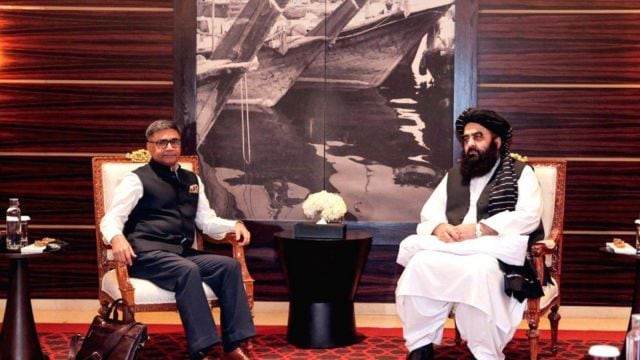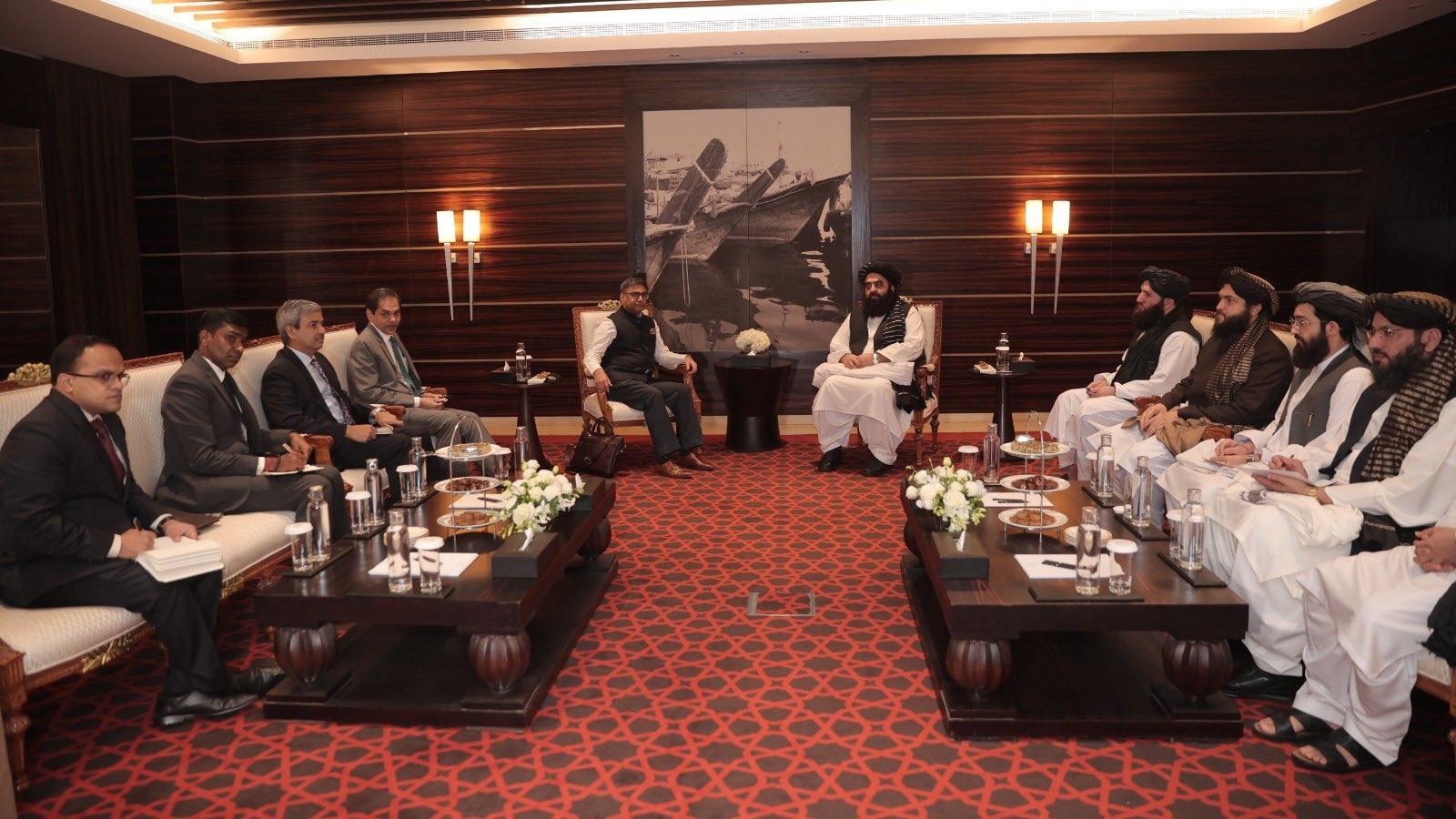In the first high-level bilateral engagement with the Taliban regime, Foreign Secretary Vikram Misri met Afghanistan acting Foreign Minister Amir Khan Muttaqi in Dubai Wednesday.
So far, an Indian official, at the level of Joint Secretary, had been meeting Taliban ministers, including Muttaqi, and Defence Minister Mohammad Yaqoob. But Misri’s meeting is an upgrade, signalling high-level official engagement from the Indian government.

A statement from the Ministry of External Affairs said the two sides discussed various issues pertaining to bilateral relations as well as regional developments.
But it was not just a meet-and-greet sort of a meeting as it covered a range of issues — India’s “security concerns” in Afghanistan, the need for India to “consider engaging in development projects in the near future”, Delhi’s humanitarian assistance including support for rehabilitation of Afghan refugees from Pakistan, use of Iran’s Chabahar port for accessing the conflict-ridden country, and cricketing ties between the two countries.
“The Afghan side underlined its sensitivities to India’s security concerns,” the MEA statement said. One of Delhi’s core concerns has been that anti-India terror groups should not be allowed to operate from Afghan soil.
During the meeting, Foreign Secretary Misri “underlined India’s historic friendship with the Afghan people and the strong people-to-people contacts between the two countries. In this context, he conveyed India’s readiness to respond to the urgent developmental needs of the Afghan people,” the MEA said.
 Foreign Secretary Vikram Misri, Afghan acting Foreign Minister Amir Khan Muttaqi with their teams in Dubai. (Image source: X@MEAIndia_
Foreign Secretary Vikram Misri, Afghan acting Foreign Minister Amir Khan Muttaqi with their teams in Dubai. (Image source: X@MEAIndia_
It said the two sides “evaluated the ongoing Indian humanitarian assistance programmes. The Afghan Minister appreciated and thanked the Indian leadership for continuing to engage and support the people of Afghanistan. In view of the current need for development activities, it was decided that India would consider engaging in development projects in the near future, in addition to the ongoing humanitarian assistance programme”.
Story continues below this ad
The MEA said that in response to the needs of the Afghan people, India decided to extend humanitarian assistance to Afghanistan. India has so far dispatched several shipments consisting of 50,000 MTs of wheat, 300 tons of medicines, 27 tons of earthquake relief aid, 40,000 litres of pesticides, 100 million polio doses, 1.5 million doses of Covid vaccine, 11,000 units of hygiene kits for the drug de-addiction programme, 500 units of winter clothing and 1.2 tons of stationery kits.
“In response to the request from the Afghan side, India will provide further material support in the first instance to the health sector and for the rehabilitation of refugees,” the MEA said. This rehabilitation of refugees is again an important element since Pakistan has been sending back Afghan refugees.
The two sides also discussed “strengthening of sports (cricket) cooperation, which is highly valued by the young generation of Afghanistan.” This is a sunrise area for stronger cooperation, as India has helped Afghan cricketers to practice in India including in Noida.
“It was also agreed to promote the use of Chabahar port for supporting trade and commercial activities, including for the purpose of humanitarian assistance for Afghanistan.”
Story continues below this ad
India got a reprieve from US sanctions on the use of Chabahar port, citing access to Afghanistan as a reason. But with Donald Trump set to enter the Oval Office on January 20 and the threat of sanctions, this is also a posturing just before the inauguration to showcase the potential utility of the Chabahar port.
The two sides, the MEA said, agreed to remain in touch and continue regular contacts at various levels – this keeps the window open for future engagements at a political level.
Incidentally, there was no mention of protection of rights – be it women’s rights, or minorities and their inclusion in the Taliban-led government – in the MEA’s official statement about the meeting between Misri and Muttaqi.
Since August 2021, when the Taliban seized control of Kabul, there have been at least four meetings between J P Singh, Joint Secretary heading the Pakistan, Afghanistan and
Story continues below this ad
Iran division in the Ministry of External Affairs, and the Taliban leaders including Muttaqi and Yaqoob, and a meeting between the Indian Ambassador in Qatar with the Taliban representative in Doha.
India has also stationed a technical team at its Kabul embassy which was evacuated in August 2021. The technical team has met key Taliban leaders including Muttaqi.



 Foreign Secretary Vikram Misri, Afghan acting Foreign Minister Amir Khan Muttaqi with their teams in Dubai. (Image source: X@MEAIndia_
Foreign Secretary Vikram Misri, Afghan acting Foreign Minister Amir Khan Muttaqi with their teams in Dubai. (Image source: X@MEAIndia_





